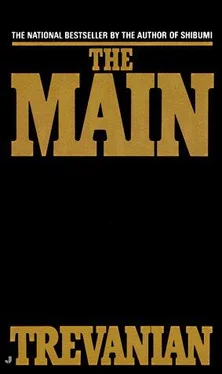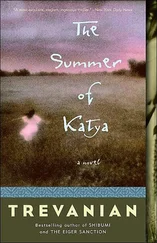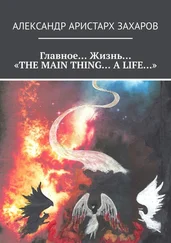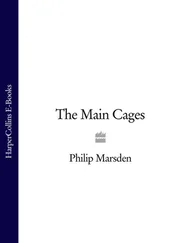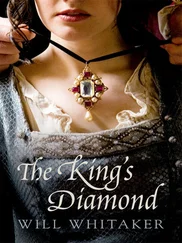But LaPointe had better get moving along. He doesn’t want to be late for his pinochle game.
“…so all the wise men and pilpulniks of Chelm get together to decide which is more important to their village, the sun or the moon. Finally they decide in favor of the moon. And why? Because the moon gives light during the night when, without it, they might fall into ditches and hurt themselves. While the sun, on the other hand, shines only during the day, when already it is light out. So who needs it!” David Mogolevski snorts with laughter at his own story, his thick body quaking, his growling basso filling the cramped little room behind the upholstery shop. His eyes sparkle as he looks from face to face, nodding and saying, “Eh? Eh?” soliciting appreciation.
Father Martin nods and grins. “Yes, that’s a good one, David.” He is eager to show that he likes the joke, but he has never known how to laugh. Whenever he tries out of politeness, he produces a bogus sound that embarrasses him.
David shakes his head and repeats, his eyes tearing with laughter, “The sun shines only during the day! So who needs it!”
Moishe Rappaport smiles over the top of his round glasses and nods support for his partner. He has heard each of David’s jokes a hundred times, but he still enjoys them. Most of all, he enjoys the generous vigor of David’s laughter; but sometimes he is tense when David starts off on one of his longer tales, because he knows the listener has probably already heard it, and may be unkind enough to say so. There is no danger of that with these pinochle friends; they always pretend never to have heard the stories before, although Moishe and David have been playing cards with the priest and the police lieutenant every Thursday and Monday night for thirteen years now.
The back room is cramped by stacks of old furniture, bolts of upholstery, and the loom on which Moishe makes fabrics for special customers. A space is cleared in the center under a naked light bulb, and a card table is set up. At some time during the night there will be a break, and they will eat sandwiches prepared by Moishe and drink the wine LaPointe brought.
Father Martin contributes only his presence and patience—and this last is no small offering, for he is always David’s partner.
Throughout the evening there is conversation. Moishe and Father Martin look forward to these opportunities to examine and debate life and love; justice and the law; the role of Man; the nature of Truth. They are both scholarly men to whom the coincidences of life denied outlets. David injects his jokes and a leavening cynicism, without which the philosophical ramblings of the other two would inflate and leave the earth.
LaPointe’s role is that of the listener.
For all four, these twice-weekly games have become oases in their routines, and they take them for granted. But if the games were to end, the vacuum would be profound.
Each would have to search his memory to recall how they got together in the first place; it seems they have always played cards on Thursdays and Mondays. In fact, Father Martin met David and Moishe while he was canvassing the Main for contributions toward the maintenance of his battered polyglot parish. But how that led to his playing cards with them he could not say. LaPointe entered the circle just as casually. One night on his way home after putting the street to bed, he saw a light in the back of the shop and tapped at the window to see if everything was all right. They were playing three-handed cutthroat. Maybe LaPointe was feeling lonely that night without knowing it In any event, he accepted their invitation to join the game.
They were all in their forties when first they started playing. LaPointe is fifty-three now; and Moishe must be just over sixty.
David rubs his thick hands together and leers at his friends. “Come, deal the cards! The luck has been against me tonight, but now I feel strong. The good Father and I are going to schneider you poor babies. Well? Why doesn’t somebody deal?”
“Because it’s your deal, David,” Moishe reminds him.
“Ah! That explains it. Okay, here we go!” David has a flashy way of dealing which often causes a card to turn over. Each time this occurs he says, “Oops! Sunny side up!” His own cards never happen to turn over. He sweeps in his hand with a grand gesture and begins arranging it, making little sounds of surprised appreciation designed to cow adversaries. “Hello, hello, hel-lo!” he says as he slips a good card into place and taps it home with his finger.
David’s heritage is rural and Slavic; he is a big man, unsubtle of feature and personality; gregarious, gruff, kind. When he is angry, he roars; when he feels done in by man or fate, he complains bitterly and at length; when he is pleased, he beams. The robust, life-embracing shtetl tradition dominates his nature. In business he is a formidable bargainer, but scrupulously honest. A deal is a deal, whichever way it turns. Although it is Moishe’s skill and craftsmanship that make their little enterprise popular with decorators from Westmont, the business would have failed a hundred times over without the vigor and acumen of David. His personality is perfectly reflected in the way he plays cards. He tends to overbid slightly, because he finds the game dull when someone else has named trump. When he is taking a run of sure tricks, he snaps each card down with a triumphant snort. When he goes set, he groans and slaps his forehead. He gets bored when Moishe and Father Martin delay the game with their meandering philosophical talks; but if he thinks of a good story, he will reach across the table and place his hand upon the cards to stop play while he holds forth.
Moishe, too, is revealed in his cardplaying. He collects his hand and arranges it carefully. Behind the round glasses, his eyes take an interior focus as he evaluates the cards. He could be the best player by far, if he were to concentrate on the game. But winning isn’t important to him. The gathering of friends, the talk, these are what matter. Occasionally, just occasionally, he takes a perverse delight in bearing down and applying his acute mind to the job of setting David, particularly if his friend has blustered a little too much that evening.
Slight, self-effacing, Moishe is the very opposite of his business partner. During the days he is to be found in the back room, tacks in his mouth, driving each one precisely into place with three taps of his hammer. Tap… TAP… tap. The first rap setting the point, the second neatly driving the tack home, the third for good measure. Or he will be working at his small loom, his agile fingers flying with precision. If he is in a repeat pattern requiring little attention, his expression seems to fade as his mind ranges elsewhere, on scenes of his youth, on hypothetical ethical problems, on imagined conversations with young people seeking guidance.
As a young man he lived in Germany in the comfortable old ghetto house where his great-grandfather had been born, a home that always smelled of good cooking and beeswax polish. They were a family of craftsmen in wood and fabric, but they admired learning, and the most revered of their relatives were those who had the gifts and devotion for Talmudic scholarship. As a boy he showed a penchant for study and that mental habit of seeing things simultaneously in their narrowest details and their broadest implications that marks the Talmudic scholar—a gift Moishe calls “intellectual peripheral vision.” His mother was proud of him and found frequent opportunities to mention to neighbor ladies that Moishe was up in his room studying again, instead of out playing and wasting his time. She would lift her hands helplessly and say that she didn’t know what she would do with that boy—all the time studying, learning, saying brilliant things. Maybe in the long run it would be better if he were a common ordinary boy, like the neighbors’ sons.
Читать дальше
